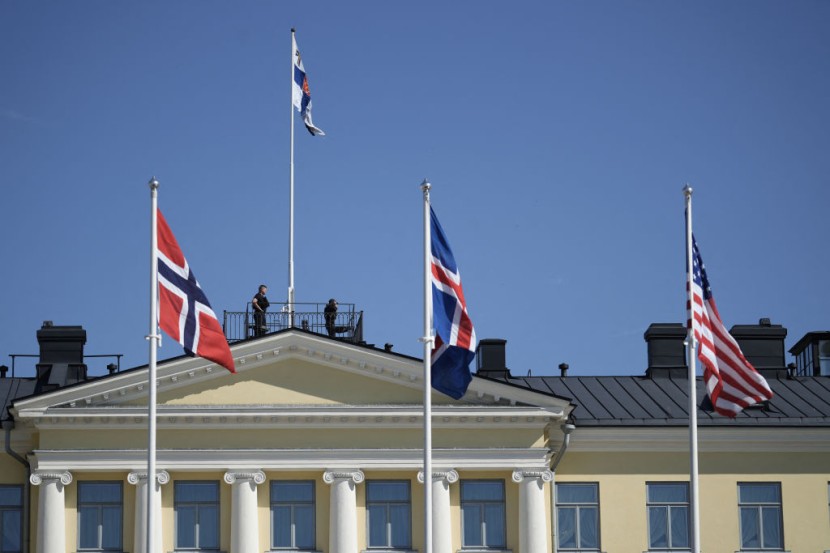
In response, Warsaw authorities have decided to increase Poland's military presence along the border and have summoned Belarus' top diplomat in protest, Fox News reported
NATO has also been informed of the incident, according to the Defense Ministry. Anxieties have been escalating in Poland and neighboring Lithuania following the arrival of mercenaries from the Russia-linked Wagner group in Belarus.
Wagner Mercenaries' Presence in Belarus Raises Security Concern
The presence of these mercenaries in Belarus, after their short-lived rebellion against the Kremlin in June, has raised security concerns in the region. The situation has been further complicated by large numbers of migrants and refugees from the Middle East and Africa attempting to enter Poland and Lithuania.
Both countries view this migration as an attempt by Belarus, an ally of Moscow, to create instability. The incident involving the Belarusian helicopters was initially denied by Poland's military, but the Defense Ministry later confirmed the violation of airspace, explaining that the helicopters were conducting training near the border at a low altitude, hindering radar detection.
As a result of the incursion, Defense Minister Mariusz Błaszczak has ordered an increase in the number of soldiers along the border and other military resources, including combat helicopters. The Foreign Ministry has summoned Belarus' chargé d'affaires and issued a firm protest, urging Belarus to provide an immediate and detailed explanation for the incident.
The Polish side perceives the incident as another element contributing to the escalation of tension on the Polish-Belarusian border and expects Belarus to refrain from such activities.
Poland's Prime Minister Mateusz Morawiecki had previously expressed concerns about over 100 Wagner mercenaries from Belarus approaching the strategic stretch of Polish territory known as the Suwalki Gap, as per The Sun.
Poland-Belarus Border Tensions
Meanwhile, Belarusian President Alexander Lukashenko, a close ally of Russian President Vladimir Putin, has made provocative remarks taunting Warsaw over the presence of Wagner mercenaries near the NATO country's border.
The contradictory statements made by Belarusian President Alexander Lukashenko regarding the presence of Wagner mercenaries near the Polish border have only served to add to the already existing uncertainties and tensions in the region.
As the situation remains fluid and unpredictable, Poland and its NATO neighbors in the region are keeping a close eye on the potential threats posed by the Wagner group. Recently Wagner fighters near the Polish border have further intensified concerns about the group's activities and intentions.
Poland, along with its allies in NATO, views the presence of these mercenaries as a potential security risk, given the group's links to Russia and its involvement in conflicts in the region. In response to the incident of Belarusian helicopters violating Polish airspace, the Polish government has taken proactive measures to bolster its military presence along the border.
This move is aimed at reinforcing the country's defense capabilities and sending a clear message that any breaches of sovereignty will be met with a robust response.
The ongoing incidents and rising tensions in the region highlight the critical importance of diplomatic efforts and cooperation in managing security concerns. Dialogue and collaboration between Poland, its NATO allies, and Belarus are essential to de-escalate the situation and prevent further potential confrontations, according to Daily Mail
© 2025 HNGN, All rights reserved. Do not reproduce without permission.








